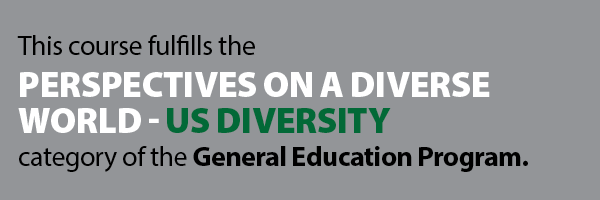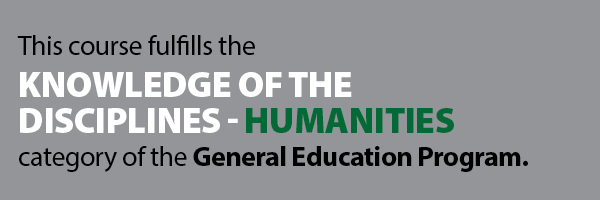2018-2019 Undergraduate Catalog This is not the most recent catalog version; be sure you are viewing the appropriate catalog year.
|
RLST 275 - Gender, Sexuality, and Religion in the U.S. [GEUS or GEKH]
This course examines interactions among gender, sexuality, and religion in the U.S. by exploring primary and secondary sources from a variety of religious traditions including Christianity, Judaism, Islam, Buddhism, Hinduism, Native traditions, and neo-pagan practices.
Credit 3 hrs May not be repeated for additional credit
Grade Mode Normal (A-F) Course Rotation Winter
Cross-Listed with WGST 275
Class-Level Restriction Undergraduate standing

This course examines the ways that religions in the U.S. address gender and sexuality. As such, it not only addresses religious diversity, it also explicitly examines how women and LGBT people interact with religious doctrine and communities. In the process, students will examine ways that women and LGBT people are oppressed, excluded, tolerated, included, and celebrated in a variety of religious traditions. Gender, sexuality, and religion are all key aspects of US diversity. In order to effectively address the complexity of US cultural identities, students must understand how the diversity of ways that religious traditions approach gender and sexuality. Religious justifications for how gender and sexuality are addressed not only support some forms of social intolerance, they also provide avenues to resist that intolerance. As such, students will benefit from developing a deeper understanding of the dynamics addressed in this course. Course texts include religious writings, fiction, and scholarly research. Assignments ask students to analyze these texts and demonstrate an understanding of the ideas presented in them.

This course examines the ways that religions in the U.S. address gender and sexuality. As such, it not only addresses religious diversity, it also explicitly examines how women and LGBT people interact with religious beliefs and practices. Students will examine primary and secondary sources about a variety of religious traditions and feminist and LGBT responses to religious doctrine. Assignments ask students to analyze these texts and demonstrate an understanding of the religious and gendered ideas presented in them. They will focus on the empathic understanding of other people’s beliefs and practices through the exploration of their experiences of discrimination, struggle, and celebration within religious communities.
Notes -
Equivalent Courses WGST 275
Updates Approved for GEUS and GEKH 10/2017, effective Fall 2018; New Course 3/2017, effective Fall 2017
Class listings and details page
|